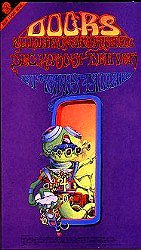

He was an autonomous individual, that is, an individual who has shaken off all social constraints, norms, and expectations, and lives according to his own internal laws and ideals.īecause of his self achieved freedom, happiness, and self sufficiency, Diogenes considered himself a king among men, an interesting claim given that he begged for his daily sustenance, lived in a pithos, which is a storage jar or tub, and owned nothing except for a worn and tattered cloak and staff. He alone, he boasted, was free, self sufficient, and happy. While he saw practically all individuals as immersed in an evil life, enslaved by their own ignorance and conforming blindly to the herd that is mankind, Diogenes proclaimed to have escaped such a life. Once, when someone mentioned to Diogenes that life itself was evil, Diogenes corrected him by saying: “Not life itself, but living an evil life.” Yet contrary to the modern cynic, the Ancient Cynic was not pessimistic about life itself, and believed that each individual had the power to transform their life so as to achieve freedom, self sufficiency, and happiness. Most people are vain, lazy, ignorant, and blindly obedient, or at least this was Diogenes’ opinion. Like the modern cynic, the Ancient Cynic, as exemplified by Diogenes, did not think very highly of the general run of mankind. Life, for the modern cynic, would have been better if it never happened at all. The modern meaning of the word cynicism is very different from the classical or ancient meaning of the word, and to differentiate the two scholars capitalize the word Cynic or Cynicism when referring to Ancient Cynicism.Ī modern cynic is generally an individual who thinks negatively about human beings and existence in general. The Ancient Cynic movement influenced many schools of thought, most notably Stoicism whose doctrines were said to be “written on the tail of the dog”, and many individual philosophers such as Friedrich Nietzsche, who claimed that “the highest one can reach on earth is Cynicism”.

Cynicism as a philosophical movement lasted approximately 900 years, commencing in the 5th century BC with Diogenes. Hence, Diogenes was also called Diogenes the Dog which means “the man from God who acted like a dog”.ĭiogenes was one of the founders and most famous members of the philosophical movement known as Cynicism. The word cynic comes from the Greek word for dog (kyon) and Diogenes is a name which means “the man from God”. In this lecture we are going to investigate the life and ideas of Diogenes the Cynic. The following is a transcript of this video.
DIOGENES LANTERN FREE
Get a FREE membership video! Subscribe to our Newsletter. Click to share on Pocket (Opens in new window).

Click to share on Pinterest (Opens in new window).Click to share on Tumblr (Opens in new window).Click to share on Reddit (Opens in new window).Click to share on Twitter (Opens in new window).Click to share on Facebook (Opens in new window).


 0 kommentar(er)
0 kommentar(er)
